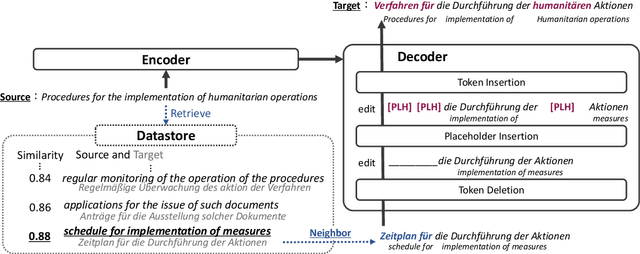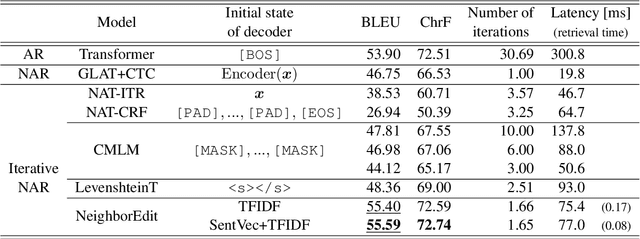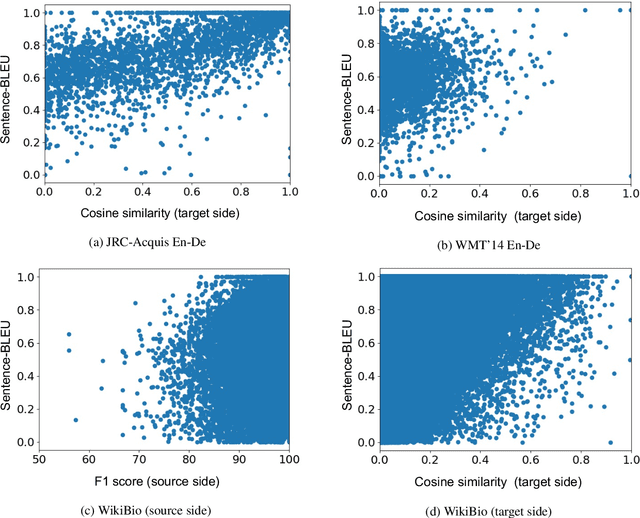Nearest Neighbor Non-autoregressive Text Generation
Paper and Code
Aug 26, 2022



Non-autoregressive (NAR) models can generate sentences with less computation than autoregressive models but sacrifice generation quality. Previous studies addressed this issue through iterative decoding. This study proposes using nearest neighbors as the initial state of an NAR decoder and editing them iteratively. We present a novel training strategy to learn the edit operations on neighbors to improve NAR text generation. Experimental results show that the proposed method (NeighborEdit) achieves higher translation quality (1.69 points higher than the vanilla Transformer) with fewer decoding iterations (one-eighteenth fewer iterations) on the JRC-Acquis En-De dataset, the common benchmark dataset for machine translation using nearest neighbors. We also confirm the effectiveness of the proposed method on a data-to-text task (WikiBio). In addition, the proposed method outperforms an NAR baseline on the WMT'14 En-De dataset. We also report analysis on neighbor examples used in the proposed method.
 Add to Chrome
Add to Chrome Add to Firefox
Add to Firefox Add to Edge
Add to Edge